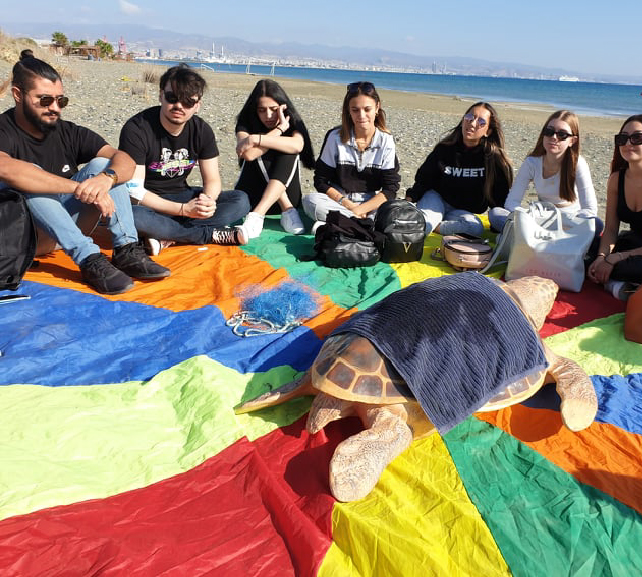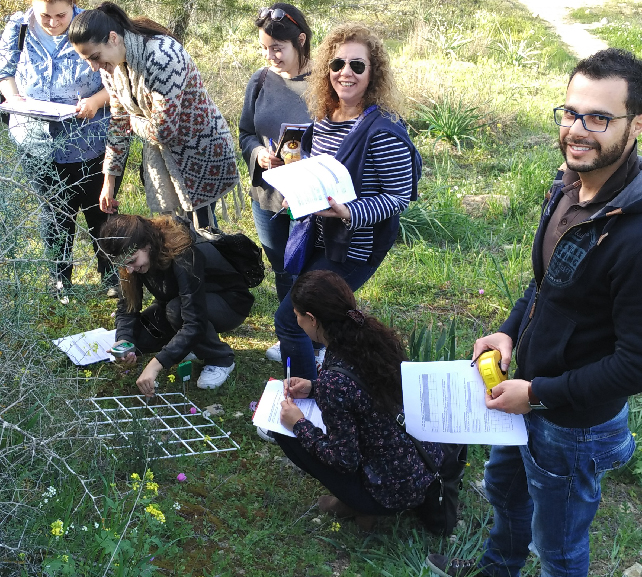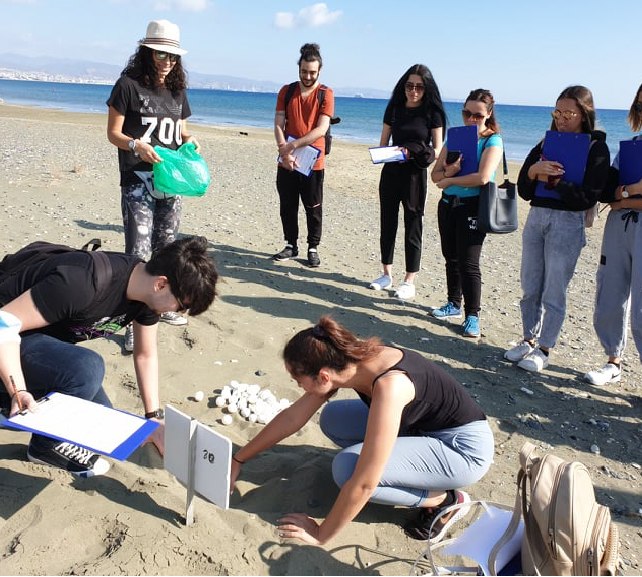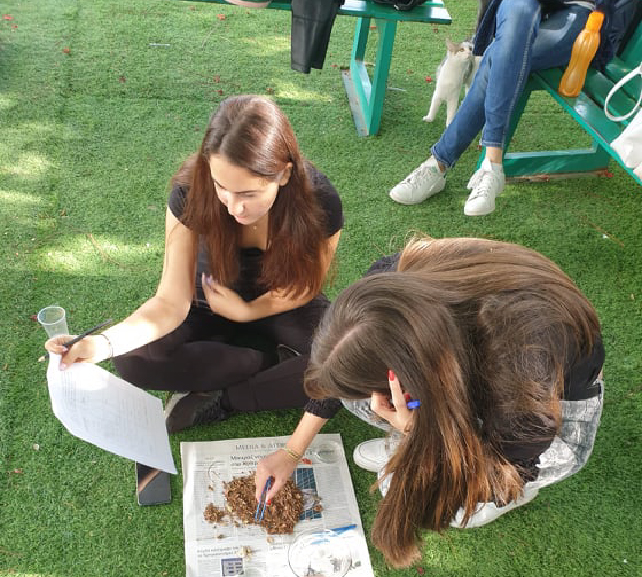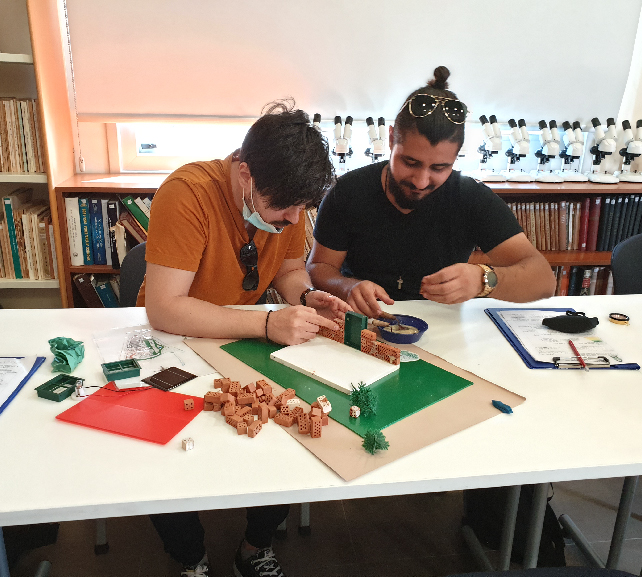PROGRAM DETAILS
Duration18 months (full time)
Fees
€9,000 (euros)
LanguageGreek
CampusNicosia, Limassol
The Postgraduate Programme “MSc in Education for Sustainable Development and Social Change” focuses on theories and practices of Education for Sustainable Development (ESD) as a means of transforming thinking, influencing behaviour patterns and developing competences in order to empower individuals of various professions and backgrounds to enable through their professional positions and roles, the social change needed for achieving Sustainable Development.
The Program embraces a holistic, interdisciplinary approach that promotes the infusion of ESD through different disciplines being, therefore, appealing to a broad spectrum of different professions and social groups. It aims to help students of various backgrounds to become reflective practitioners and agents of change, locally as well as globally through their own professional practice. More specific objectives focus on developing students’ critical understanding of Sustainable Development (SD) issues, developing competences and pedagogical skills required for critical reflection, action-oriented transformative pedagogy and helping learners promote active and responsible citizenship for addressing sustainability. Objectives also seek to promote critical pedagogies for addressing SD issues through innovative approaches that encourage life-long authentic learning and social participation: values education for SD; the use of new technologies as sources and transformative tools; and alternative means of learning through the arts.
The Program’s structure ensures a balance between the academic dimension, research and practice based on pedagogical activities that can be applied in various educational contexts. Research in ESD is promoted through a research methods course, research-oriented assessment methods in the program courses, the compulsory Masters’ Thesis and through a well-established collaboration network between the university and other academic and social partners with common areas of research interests, on a local, regional (Mediterranean) and international level. Such collaborations build valuable experiences and can promote Education for Sustainable Development and Social Change as an issue of national and regional educational priority.
By the end of their studies, students are expected to acquire a comprehensive set of knowledge, important skills and a mindset (values and attitudes) necessary for delivering ESD through formal, informal and non-formal educational settings. In particular, students should:
- Recognise sustainable development as a political, ideological, highly complex and contested concept.
- Analyse critically contemporary, global, regional and local SD issues, understand their universality and indivisibility and acknowledge that these are major development challenges for humanity.
- Explore Sustainable Development Goals (SDGs) as universal, transformational and inclusive goals that can be achieved through social engagement and responsibility.
- Reflect critically on one’s own theories, values, beliefs, learning and practice about SD issues.
- Acknowledge and deliver ESD as a transformative, critical pedagogy responsive to the systemic, holistic, and values-oriented nature of SD.
- Embrace ESD as a lifelong learning process and realise that beyond formal education it draws experiences, skills and action opportunities from non-formal and informal educational settings.
- Develop competences for ESD, be able to transfer these competences to learners in their professional environments and operate as multiplier agents for SD.
- Be able to apply basic principles and strategies of ESD and understand how these can foster the values and skills that will lead to sustainable, just and inclusive growth and peaceful living together.
- Analyse and critically discuss on the social – transformative impact of arts (visual arts, drama, literature).
- Be able to use and develop ICT-enabled instructional materials and programs which will foster sustainability justice and the formation of positive values, attitudes and ethical behavior towards sustainable human development.
- Demonstrate leadership for implementing whole institution approaches to ESD
- Deconstruct and reconstruct the conventional discourse οn ESD curriculum, teaching, learning and research methodology; embracing principles of empowerment, change agency, active participation and critical reflection.
The design of the postgraduate program aims at providing students with the appropriate theoretical background based on the latest research findings, practical knowledge and skills, in order to become efficient scientists able to cope with the increasing education challenges in formal, informal and non-formal settings.
It prepares graduates for employment in NGOs, non-formal education (e.g. environmental education centers), local authorities and agencies of the public or private domain, active in areas of Sustainable Development. Educators already employed at any level and discipline of formal education can find the qualification useful for professional development and progress purposes.
Moreover, they can pursue further postgraduate studies at doctoral level.
Admission Requirements
Parties interested to apply are strongly urged to communicate with the Admissions Office for assistance and guidance through the application process.
Students can download the application form clicking here
As part of the application form you will need to submit the following supporting documents online and/or by post:
- Certified copy/copies of university transcript(s) and/or degree certificate(s).
- Certified copy/copies of English language competence (compulsory only if you are attending in English. Not compulsory if you are attending in Greek)
- Evidence of an acceptable level of computer literacy/ skills which have been achieved through relevant ICT courses/experience and preferably recognised by international bodies such as ECDL/ MOUS, etc.
- Certified copy/copies of statutory identification document/s such as ID, passport, or birth certificate.
- A 600-word personal statement justifying the reasons for wanting to study the MSc. programme.
- A CV including academic and employment history and any additional relevant skills.
- Two recommendation letters from former professors and/or immediate work supervisors attesting to the applicant’s intellectual and interpersonal capacity to undertake advanced studies.
- Payment of application fees (non-refundable).
- A signed and dated declaration form stating that all information provided is accurate, up to date and pertains solely to the applicant.
General Criteria
Candidates applying for a Postgraduate Degree must submit an accredited Bachelor's Degree or equivalent qualification, along with official documents with detailed undergraduate coursework – grades.
Special Criteria
The admission requirements are specified in the General Student Regulations as well as in the Frederick University Studies Regulation.
An undergraduate degree from a recognized university or the equivalent international qualification is considered a main academic requirement.
Additionally, very good knowledge of Greek and English is extremely important. The demonstration of satisfactory knowledge of English language (suitable qualifications may include TOEFL, IELTS, GCSE, IGCSE, and Cambridge Certificate of Proficiency in English or equivalent) is compulsory for attendance in English and an advantage for attendance in Greek.
Prospective students are expected to submit their application and all related documents, such as copies of their degrees, transcripts, two letters of recommendation from professors or supervisors in the workplace and a personal statement. Where the Program Committee deems necessary, the candidates may be invited to an interview.
By the expiry of the application deadline for admission to the program, the Program Committee will evaluate prospective students based on specific criteria, such as academic records, recommendation letters, digital literacy, research interests, interview, work experience, knowledge of Greek and / or English etc. The committee decisions are announced by electronic mail or otherwise to all candidates.
Transfer of credits from other academic institutions complies with the regulations of the University for transfer students and recognition of previous studies.
Module Group
ECTS
The student must successfully complete 54 ECTS, from the following list of modules:
| No. | Code | Name | ECTS | Hours / week |
|---|---|---|---|---|
| 1 | ESD501 | ENVIRONMENT AND SUSTAINABLE DEVELOPMENT: CONCEPTS AND ISSUES | 9 | 3 |
| 2 | ESD502 | FROM ENVIRONMENTAL EDUCATION TO EDUCATION FOR SUSTAINABLE DEVELOPMENT: A THEORETICAL FRAMEWORK | 9 | 3 |
| 3 | ESD503 | DESIGNING EDUCATION PROGRAMMES FOR THE ENVIRONMENT AND SUSTAINABLE DEVELOPMENT | 9 | 3 |
| 4 | ESD504A | RESEARCH IN EDUCATION FOR THE ENVIRONMENT AND SUSTAINABLE DEVELOPMENT (PART I) | 3 | 1 |
| 5 | ESD504C | RESEARCH IN EDUCATION FOR THE ENVIRONMENT AND SUSTAINABLE DEVELOPMENT (PART III) | 3 | 1 |
| 6 | ESD505 | CONTEMPORARY APPROACHES TO EDUCATION FOR THE ENVIRONMENT AND SUSTAINABLE DEVELOPMENT | 9 | 3 |
| 7 | ESD506 | NON FORMAL EDUCATION AND EDUCATION FOR THE ENVIRONMENT AND SUSTAINABLE DEVELOPMENT | 9 | 3 |
| 8 | ESD504B | RESEARCH IN EDUCATION FOR THE ENVIRONMENT AND SUSTAINABLE DEVELOPMENT (PART II) | 3 | 1 |
The student must successfully complete 36 ECTS, from the following list of modules:
| No. | Code | Name | ECTS | Hours / week |
|---|---|---|---|---|
| 1 | ESD507 | BIODIVERSITY AND EDUCATION | 9 | 3 |
| 2 | ESD508 | RESEARCH METHODS | 9 | 3 |
| 3 | ESD510 | ENVIRONMENTAL ETHICS | 9 | 3 |
| 4 | ESD511 | NEW TECHNOLOGIES IN EDUCATION FOR THE ENVIRONMENT AND SUSTAINABLE DEVELOPMENT | 9 | 3 |
| 5 | ESD512 | ORGANISING SUSTAINABLE SCHOOLS: PRINCIPLES AND PROCESSES | 9 | 3 |
| 6 | ESD513 | ENVIRONMENTAL POLICY | 9 | 3 |
| 7 | ESD514 | ENVIRONMENTAL COMMUNICATION AND THE MEDIA | 9 | 3 |
| 8 | ESD516 | EDUCATION & TRAINING ON THE ENVIRONMENT & SUSTAINABLE DEVELOPMENT FOR ORGANISATIONS & ASSOCIATIONS | 9 | 3 |
| 9 | ESD551 | MASTER THESIS I | 9 | 0 |
| 10 | ESD552 | MASTER THESIS II | 9 | 0 |
Total
90
Semesters
ECTS
| No. | Code | Name | ECTS |
|---|---|---|---|
| 1 | ESD501 | ENVIRONMENT AND SUSTAINABLE DEVELOPMENT: CONCEPTS AND ISSUES | 9 |
| 2 | ESD502 | FROM ENVIRONMENTAL EDUCATION TO EDUCATION FOR SUSTAINABLE DEVELOPMENT: A THEORETICAL FRAMEWORK | 9 |
| 3 | ESD504A | RESEARCH IN EDUCATION FOR THE ENVIRONMENT AND SUSTAINABLE DEVELOPMENT (PART I) | 3 |
| 4 | ELECTIVE | 9 | |
| TOTAL | 30 |
| No. | Code | Name | ECTS |
|---|---|---|---|
| 1 | ESD504B | RESEARCH IN EDUCATION FOR THE ENVIRONMENT AND SUSTAINABLE DEVELOPMENT (PART II) | 3 |
| 2 | ESD505 | CONTEMPORARY APPROACHES TO EDUCATION FOR THE ENVIRONMENT AND SUSTAINABLE DEVELOPMENT | 9 |
| 3 | ESD506 | NON FORMAL EDUCATION AND EDUCATION FOR THE ENVIRONMENT AND SUSTAINABLE DEVELOPMENT | 9 |
| 4 | ELECTIVE | 9 | |
| TOTAL | 30 |
| No. | Code | Name | ECTS |
|---|---|---|---|
| 1 | ESD503 | DESIGNING EDUCATION PROGRAMMES FOR THE ENVIRONMENT AND SUSTAINABLE DEVELOPMENT | 9 |
| 2 | ESD504C | RESEARCH IN EDUCATION FOR THE ENVIRONMENT AND SUSTAINABLE DEVELOPMENT (PART III) | 3 |
| 3 | ELECTIVE | 9 | |
| 4 | ELECTIVE | 9 | |
| TOTAL | 30 |
The delivery of the program of study is supported by the following members of staff:
| Rank | Name |
|---|




